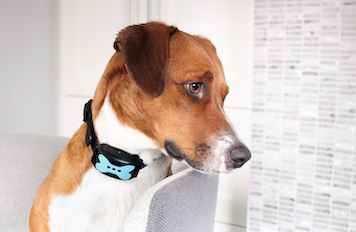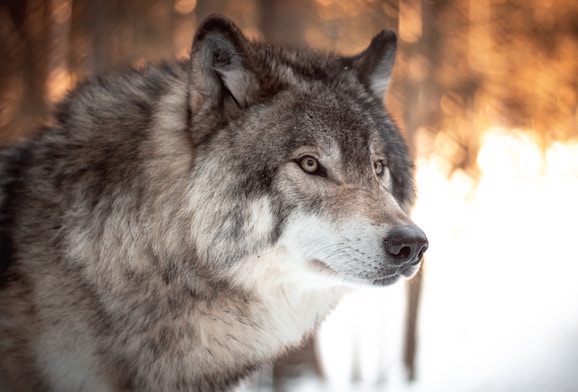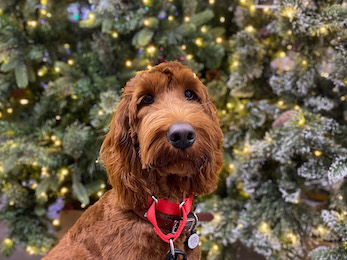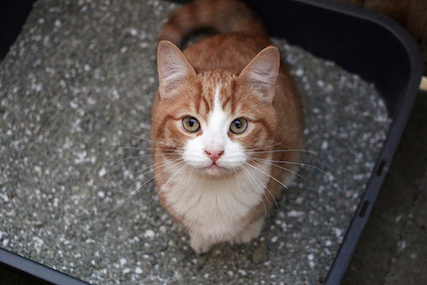Breed History
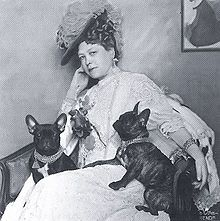
The gregarious and social French Bulldog began as a miniaturized version of the English Bulldog in the mid-1800s in several of the larger English cities. Over time, as many English citizens migrated to France in response to the industrial revolution, they took their small bulldogs with them and spread them across the French countryside. With this introduction to a new country, other breeds were added into the genetic mix, likely including Pugs and various terriers. It was at this point that the now distinctive “bat ears” became synonymous with the newly named Bouledogue Français. Eventually, the Frenchie made it to Paris and evolved into an ideal city dog, popularized by ladies and the demimonde alike. They became such common sights around cafes and dancehalls, that this breed appears in many paintings and depictions of nightlife during this time period. By the end of the 19th century, Frenchies had made their way back across Europe and into America. This new Frenchie wasn’t an instant hit in England, as many Englishman took exception to this modification of their much beloved English Bulldog. Americans embraced the breed with much more enthusiasm, quickly becoming attached to those adorable “bat” ears and their often comedic personalities. Frenchies have been steadily gaining popularity over the last several decades in the United States, especially since the 1980s, and now rank among the top five most popular dog breeds. This is even more true in large metropolitan areas, as Frenchies rank as the number one breed in many of the biggest cities across the nation.
Breed Characteristics
The French Bulldog may be small, but he is mighty… at least in his own mind. Weighing no more than 28 pounds (and averaging around 20 pounds), the Frenchie stands approximately 12 inches tall at the shoulder. Their large, round heads, reminiscent of their English Bulldog ancestors, short, snub noses, large eyes, and wrinkled faces lend them a perpetual expression of attention and engagement. Their short coat comes in a variety of colors including brindle, white, fawn, and cream, in various combinations. Frenchies are built low and solid, with a very deep, broad chest and a slightly bow-legged appearance. Given the fact that they are brachycephalic (the characteristic snub nose due to a genetically shortened top jaw), some Frenchies are prone to respiratory problems. These issues can manifest in conditions as mild as chronic snoring or as significant as stenotic nares or elongated soft palates, which may require surgery. The exaggerated structure of the Frenchie, with their heavy chest and proportionally lighter hind end, can also sometimes lead to orthopedic issues and makes swimming dangerous without a flotation device. Other health problems that can be seen in the breed include various eye ailments such as juvenile cataracts, cherry eye (prolapse of the third eyelid gland), and entropion (eyelids are turned inward so that eyelashes may rub against the cornea). Skin allergies or autoimmune disorders are also present in some Frenchies.

Is a French Bulldog Right for You?
All the traits that earned those early French Bulldogs a reputation as the ideal city and apartment companion are still seen in modern Frenchies. While appropriate exercise and mental stimulation in the form of training or play are required for a happy Frenchie, most members of the breed are content with brief periods of activity followed by some good cuddling on the couch. Their smaller size makes transport in the city, be it via bus, taxi, or plane, relatively easy. Early training to promote a relaxed and positive attitude towards kennels, carriers and harnesses can be invaluable for those moments. Most Frenchies enjoy being the life of the party, happy to meet all manner of new people and dogs. Early socialization and proper training can help prevent insecurities or reactivity in adult dogs, which a few members of the breed are predisposed to. French Bulldogs are generally intelligent and easily motivated with food and toys, making the process of training fun and rewarding. Occasionally, the persistence and tenacity from their early Bulldog genetics can be seen in opinionated behaviors. Their short coat, while it does still shed, makes grooming and cleanup a simple and straightforward affair. Most people who have spent any time around Frenchies will report how much they like to talk! With a surprising range of vocalizations akin to that of a Husky, many Frenchies will tell you all about it! Overall, this breed adapts well to a variety of living situations and household makeups. From active and social singles to busy families, Frenchies will display their vivacity and playfulness to the entertainment of all involved!
Finding Your Next Family Member

When choosing a puppy of this breed, ensure that appropriate health testing has been done on both parents and possibly grandparents. The American Kennel Club outlines what tests are suggested for each breed to prevent the continuation of genetic diseases. The recommended health tests for Frenchies include hip and patella evaluations, and ophthalmic and cardiac exams. When meeting the puppies, ask to see both parents and any other related dogs that may be on site. Both puppies and adult members of the breed should seem friendly and sociable, any sign of aggression (apart from a female with very young puppies) should be cause for concern. Responsible breeders should be invested in finding the best homes possible for their puppies, so expect lots of questions and detailed conversations about setting new puppies up for success. Seek out breeders who are willing and able to provide support and information long after you take your new addition home. Most breed enthusiasts will be involved in confirmation exhibitions or other sports to help further the breed, with the production of puppies as a secondary goal. When inspecting the puppy-raising areas, watch for good hygiene and sanitation which will lead to healthy puppies. Since proper socialization starts well before puppies are ready to leave their mothers, it is important to consider what types of early experiences each litter has been exposed to. Puppies who have lots of early, controlled, positive, experiences with a variety of people, animals, and environments are generally predisposed to later social success.
If your new family member is coming from a rescue situation, it may not be possible to gather some of this information. However, many of the same guidelines will apply. Look for a happy, outgoing dog who is willing to approach and engage with you. Given that the shelter environment can be overwhelming for some dogs, some level of initial reticence or shyness may be seen. Taking dogs for a brief walk outside of the rescue can sometimes help them relax and bring out more of their true personality.
French Bulldogs have steadily risen in popularity for many reasons, from their aptitude for apartment living to their comical personalities. Their round eyes and big ears lend them a look of bright anticipation and endear them to anyone who benefits from their attention. Truly an ideal blend of active companion and snuggly couch mate.

